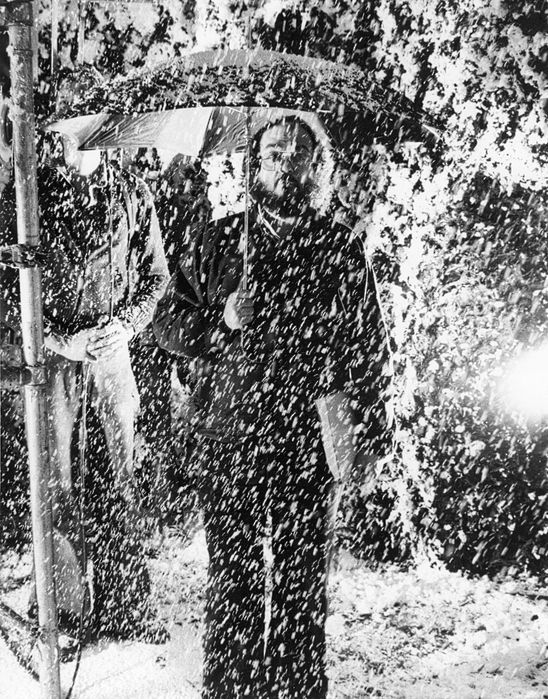PLANET EXPLORES ONE OF THE GREATEST AND MOST PROPHETIC SPEECHES BY ANY U.S. PRESIDENT, EISENHOWER’s FAREWELL TALK TO THE NATION 1/17/61, WHEN HE COINED THE PHRASE ‘MILITARY-INDUSTRIAL COMPLEX’ … LEARN WHY THIS MATTERS TODAY & WHY THIS MATTER TO YOU
By DAN VALENTI
PLANET VALENTI News and Commentary
(FORTRESS OF SOLITUDE, MONDAY, AUG. 13, 2012) — When did the U. S. Empire begin its decline?
First, about that word “Empire.”
Writer Gore Vidal began to use the phrase in the 1960s and employed it relentlessly for the rest of his life. “Empire” had formerly referred to the colonization of the world by a dominant power flaunting its position around the far-flung corners of the globe, for which the word “hegemeny” was invented.
The Roman Empire of antiquity, the Holy Roman Empire of kings and popes (which was, as one wag put it, neither Roman, Holy, nor an Empire) and England-into-Great-Britain in the 19th century that had India, Burma, and many others fit the classic mold. In modernity, though, the classic mold did not fit. We invented our own kind of decline.
You Can Peg the Decline of America to a Specific Day
Vidal’s critics — with feigned shock — would ask in umbrage, where outside of Guam, would U.S. “colonies” be found? They asked, in straight face, as if we were not an empire at all. What nonsense.
The answer would be not be found in the U.S. territories (Guam, St. Thomas, and Puerto Rico, for example) but in the 1,000 places America had its troops stationed on military bases located on foreign shores. That was and is the U.S. Empire, the corrupt bastard child of the unholy marriage between Big Business and Big Military.
America’s decline began then, when President Dwight Eisenhower warned us of the growing “military-industrial complex.” Other dates might be used, such as the day in 1971 when President Richard Nixon took the U.S. off the gold standard. You could also select that day in 1985 when America became, for the first time in its history, a debtor nation.
We would use these dates as important signposts, but we would choose Jan. 17, 1960, as the specific end of American as we knew her. THE PLANET, all of eight years old at the time, has a clear remembrance of watching this speech on our old black-and-white GE television set in our parlor on East Street in Pittsfield. Even then, at the young age, we felt the eerie aspect of Eisenhower pronouncing the end of our future, even as it lay before us.
Eisenhower coined his phrase “the military-industrial complex” on Jan. 17, 1960, in his televised farewell speech given just three days before he would leave office and John F. Kennedy would be take the oath. Today, THE PLANET presents excerpts of this incredible speech, perhaps the most prescient, frightening, and honest farewell to the nation a President has ever given. It’s no coincidence that Eisenhower chose the literal end of his eight years in the Oval Office to bring up the growing menace. In doing that, he saved his life. His successor, who was in the process of reigning in that evil complex, paid for it with his life.
The Speech to End All Speeches, Including the Gettysburg Address
After a preamble, Eisenhower gets to what’s on his mind:
We now stand ten years past the midpoint of a century that has witnessed four major wars among great nations. Three of these involved our own country. Despite these holocausts America is today the strongest, the most influential and most productive nation in the world. Understandably proud of this pre-eminence, we yet realize that America’s leadership and prestige depend, not merely upon our unmatched material progress, riches and military strength, but on how we use our power in the interests of world peace and human betterment.
Keep in mind that these are the words of a Republican, a military man, and a conservative. Of course, this was an era when men and women were not blinded by ideology. Ike is just warming up:
Our military organization today bears little relation to that known by any of my predecessors in peace time, or indeed by the fighting men of World War II or Korea.
Until the latest of our world conflicts, the United States had no armaments industry. American makers of plowshares could, with time and as required, make swords as well. But now we can no longer risk emergency improvisation of national defense; we have been compelled to create a permanent armaments industry of vast proportions. Added to this, three and a half million men and women are directly engaged in the defense establishment. We annually spend on military security more than the net income of all United State corporations.
After this set up, where you can hear Ike speaking his warning between the lines, he becomes more direct:
This conjunction of an immense military establishment and a large arms industry is new in the American experience. The total influence-economic, political, even spiritual-is felt in every city, every state house, every office of the Federal government. We recognize the imperative need for this development. Yet we must not fail to comprehend its grave implications. Our toil, resources and livelihood are all involved; so is the very structure of our society.
In the councils of government, we must guard against the acquisition of unwarranted influence, whether sought or unsought, by the military-industrial complex. The potential for the disastrous rise of misplaced power exists and will persist.
A ‘Spiritual Risk’
Eisenhower identifies the “spiritual” risk of the country failing to return to a peacetime economy. “Spiritual” is a well chosen word, odd though it may be for a President. He’s saying that the ideological differences with communism, which necessitated the need for this military buildup, will be disastrous if they are not counterbalanced by liberty, freedom at home, integrity, and …
… the need to maintain balance in and among national programs: balance between cost and hoped for advantage-balance between the clearly necessary and the comfortably desirable; balance between our essential requirements as a nation and the duties imposed by the nation upon the individual; balance between action of the moment and the national welfare of the future. Good judgment seeks balance and progress; lack of it eventually finds imbalance and frustration.
This “permanent armament industry of vast proportions” worried Eisenhower the most, and as the years went by and up to his death in 1971, Ike looked on sadly to see his warning unheeded, changed by the actions of big Business and the Generals into a dire prophecy of doom.
We must never let the weight of this combination endanger our liberties or democratic processes. We should take nothing for granted only an alert and knowledgeable citizenry can compel the proper meshing of huge industrial and military machinery of defense with our peaceful methods and goals, so that security and liberty may prosper together.
Akin to, and largely responsible for the sweeping changes in our industrial-military posture, has been the technological revolution during recent decades.
In this revolution, research has become central; it also becomes more formalized, complex, and costly. A steadily increasing share is conducted for, by, or at the direction of, the Federal government.
Unfortunately, America did “let the weight of this combination endanger our liberties and the democratic process.” We took it for granted. The citizenry did not become alert but disengaged. “National Security” — a blank check for removing freedom and installing a dictatorship of The State — smothered liberty, and they flourished and perished in an oddly beautiful synchronicity.
Technology, C’mon on Down!
Ike’s reference to technology also has prophetic aspects:
Today, the solitary inventor, tinkering in his shop, has been over shadowed by task forces of scientists in laboratories and testing fields. In the same fashion, the free university, historically the fountainhead of free ideas and scientific discovery, has experienced a revolution in the conduct of research. Partly because of the huge costs involved, a government contract becomes virtually a substitute for intellectual curiosity. For every old blackboard there are now hundreds of new electronic computers.
The prospect of domination of the nation’s scholars by Federal employment, project allocations, and the power of money is ever present and is gravely to be regarded.
Yet, in holding scientific research and discovery in respect, as we should, we must also be alert to the equal and opposite danger that public policy could itself become the captive of a scientific-technological elite.
It is the task of statesmanship to mold, to balance, and to integrate these and other forces, new and old, within the principles of our democratic system-ever aiming toward the supreme goals of our free society.
Eisenhower continues with remarks that everyone one of us should weigh against the short-sightedness practiced in the name of commerce, environmental devastation, and the depletion of natural resources owing to a cost rather than benefit imperitive:
Another factor in maintaining balance involves the element of time. As we peer into society’s future, we-you and I, and our government-must avoid the impulse to live only for today, plundering, for our own ease and convenience, the precious resources of tomorrow. We cannot mortgage the material assets of our grandchildren without risking the loss also of their political and spiritual heritage. We want democracy to survive for all generations to come, not to become the insolvent phantom of tomorrow.
At stake, Eisenhower warned us, is civilization itself:
Down the long lane of the history yet to be written America knows that this world of ours, ever growing smaller, must avoid becoming a community of dreadful fear and hate, and be, instead, a proud confederation of mutual trust and respect.
Such a confederation must be one of equals. The weakest must come to the conference table with the same confidence as do we, protected as we are by our moral, economic, and military strength. That table, though scarred by many past frustrations, cannot be abandoned for the certain agony of the battlefield.
Disarmament, with mutual honor and confidence, is a continuing imperative. Together we must learn how to compose difference, not with arms, but with intellect and decent purpose. Because this need is so sharp and apparent I confess that I lay down my official responsibilities in this field with a definite sense of disappointment. As one who has witnessed the horror and the lingering sadness of war-as one who knows that another war could utterly destroy this civilization which has been so slowly and painfully built over thousands of years-I wish I could say tonight that a lasting peace is in sight.
—– 00 —–
Here is a clip of that great speech:
Eisenhower warns us of the military industrial complex. – YouTube |
|
The Military-Industrial Complex, On Closer Look
In looking deeper into this “tipping point” moment in U.S. history, THE PLANET came across the website militaryindustrialcomplex.com. Taxpayers and concerned citizens, we urge you to visit this site, which catalogs on a daily basis the sinful, evil amounts of your money spent on what is perhaps the greatest swindle of all time: “National Security.”
The website presents, among a ton of other useful information, this extended definition of the the phrase:
What is the Military-Industrial Complex?
The Military-Industrial Complex is a phrase used to signify a comfortable relationship between parties that are charged to manage wars (the military, the presidential administration and congress) and companies that produce weapons and equipment for war (industry). To put it simply, the Military-Industrial Complex is described as an all-too friendly relationship that may develop between defense contractors and government forces, where both sides receive what they are perceivably looking for: a successful military engagement for warplanners and financial profit for those manning the corporate boardrooms. It can be viewed as a “war for profit” theory.
The idea of war for profit is nothing new in the realm of human history and can be traced back centuries earlier where arms races and the power of navy ships ruled an empire’s reach. The arms race between the European powers of France, Spain and Britain could arguably be a primal version of today’s modern so-called military-industrial complex. The idea was that a country must build up and maintain a ready military – the largest in the world at that – to remain a world power. Centuries ago, such a military was necessitated to protect aggression from neighboring countries. These days, an invasion of the American homeland may seem ridiculous and contrary to the building of a global community founded in trust and respect. Others might argue differently.
In any case, the theory of a mutually beneficial relationship may not appear to be so far-fetched. It is no secret that the defense industry profits most when a nation commits to a lengthy war overseas. As any military will spare no expense for victory, it only makes sense to tap the resources of the defense industry to accomplish the mission. A sort of pseudo-world dominance through the basic form of imperialism can be seen to be just as important to a military force as is protecting one’s homeland. The bottom line: war is good business for those invested in it – manufacturing, production, servicing, etc.. To the war-minded industry, a wartime economy is just as profitable as a solid growing one, where shells and ammunition take precedence over the production of peacetime light bulbs or pencils. One need only to peruse the list of manufacturers participating in production during the Second World War to see just how a wartime economy can alter a single factory.
The phrase Military-Industrial Complex was first utilized in an American report at the turn of the 20th Century. “Military-Industrial Complex” was later immortalized by outgoing United States President Dwight D. Eisenhower in his January 17, 1961 farewell address to the nation. In his speech, he cites the Military-Industrial Complex as a warning to the American people – to not let this establishment begin to dictate America’s actions at home or abroad. The original usage appeared in the form of Military-Industrial Congressional Complex but later removed.
This website exists to keep a record and tally of information that is publicly released by the United States Department of Defense. We do not claim that it is 100% accurate, as all information is never divulged from any one government source, yet it does cause one to ponder the issue. If you do believe in the Military-Industrial Complex, the sheer significance of such a relationship between our government and business is overwhelming. [THE PLANET’s underline]
THE PLANET adds that the overwhelming size of the government-business relationship ensures inadequate oversight. No human beings or computers can keep proper accountability.
——————————————————–
THE PLANET shares a letter to the editor, sent to the blog, Real World Economics, on the 50th anniversary of the “military industrial complex” speech.
“Now, as the decline sets in’
One of the remarkable facets of American postwar history is its relentless movement away from its roots. Prior to World War II America had a visceral dislike for large standing armies. In Ike’s day the two political parties were both searching for ways to make health care universal. The New Deal provided the context for business and politics. Imperialism was a scourge of Europe and not an American goal. And so on.
That Ike now would fit neatly within the modern Democratic party is testimony to the shift. A shift brought on by the illusions of power and greed that all great nations fall prey to. Now as decline sets in Americans have to confront the distortions of the postwar era. That is hard to do. It requires degree of attachment with a nation’s roots that is difficult when empire has so totally severed them.
And Ike was right: the perversion of our discourse imposed by the militarization of the nation is enormous. We toss around the word “hero” with abandon. We debase our community by overcommitting resources to defense. We delude ourselves that we need to spend all that money to defend ourselves. Besides it is always easier to sell the taxpayers on the need to spend on “defense” rather than on “offense”. That’s why I call it the offense budget. That’s what it is. — PETER RADFORD
A Decline Toward Second-World Status, Maybe Even Third















Hey Dan,
Quite an excellent article here. Very well researched and so much truth.
“All I want is the truth, just give some truth now.”
– John Lennon
Usually when trying to tell someone the truth of what is going on, one is quickly labeled a “conspiracy theory nut” and dismissed. Its the adult version of a child who while trying not to disrespect an authority figure but at the same time does not want to hear what is being spoken — covers both his ears with his hands and shakes his head back and fourth Humming or saying something like la,la,la,la in an effort to drowned out what is being said.
I sit back with wonderment at people’s lack of understanding and unwillingness to get to the truth of what is really going on in this world even when presented with undeniable facts.
Your article here shows that you know, with research and documented evidence and even a video of Eisenhower’s speech, warning the American public.
It was JFK’s signing of Executive Order 11110 that got him killed. Signed on June 4, 1963 it effectively ordered the US Treasury department to print the money and take away from the Federal Reserve Bank the ability to create money.
It only took roughly 5 months to organize his demise.
If you take away the ability to create money from the ones who have the power to do so, they will take you away.
No President has ever since tried to touch this. The only candidate to ever even mention doing so is Ron Paul. A name synonymous with “conspiracy theory”.
The very first thing President Lydon Johnson did as President was to call in all those bills and replace them with Federal Reserve Notes. The ones that did get out into circulation say “United States Note” — a very significant difference.
I enjoy reading your articles Dan.
We’re all already slaves to the bank if you think about it. My goal over the 15 years is to pay everything off and not have a mortgage that’s how you stick it to them. It’s amazing how many people don’t know the Federal Reserve bank is privately owned. Why would we give the authority to print money away then buy it back with interest? It doesn’t make any sense and most of the early presidents where very anti federal reserve.
SCOTT
If people were educated enough about how money works, the B.S. would stop. Fortunately, though, for the U.S. and the global economy, most Americans haven’t an economic clue. We are compounding this by not teaching young people whatsoever about the nature of economics or capital (particularly its relationship to energy). R.I.P., America.
Are you saying that they don’t even teach kids how to balance a check book anymore or write a resume/fill out a job application?
Not even that.
Great article, and I enjoyed the extensive background and foreground material. Sadly the Amercia that once was no longer is. From a govt of ‘we the people’ to an oligarchy. DV spells out the palace coup.
DTR
Many thanks.
I’m sick and tired of hearing things
From uptight, short-sighted, narrow-minded hypocrites
All I want is the truth
Just gimme some truth
I’ve had enough of reading things
By neurotic, psychotic, pig-headed politicians
All I want is the truth
Just gimme some truth
No short-haired, yellow-bellied, son of Tricky Dicky
Is gonna mother hubbard soft soap me
With just a pocketful of hope
Money for dope
Money for rope
I’m sick to death of seeing things
From tight-lipped, condescending, mama’s little chauvinists
All I want is the truth
Just gimme some truth now
I’ve had enough of watching scenes
Of schizophrenic, ego-centric, paranoiac, prima-donnas
All I want is the truth now
Just gimme some truth
I’ve had enough of reading things
by neurotic, psychotic, pig-headed politicians
All I want is the truth now
Just gimme some truth now
— John Lennon 1971
— George Harrison (Lead Guitars)
Eisenhower’s speech is wooden verbiage compared to Lincoln’s Gettyburg Address.
For the artful turn of the phrase, of course Lincoln has it over Ike. For a vital message that conveys an essential reality to a most-modern audience, Ike nails it.
Lincoln’s speech succinctly states all that could or should be said after that war that took a much greater toll on this nation and its soldiers than even WWII. It’s reality is still very current. Tilling the ground near Gettysburg will turn up the remnants of just that one battle that lie just a scant few inches below the ground.
Simplicity is the sister of genius.
LEV
Lincoln’s war was fought the old fashioned way, with limited mechanization and lots of hand-to-hand. Ike’s war was the most mechanized to that date, a taste of what would lie ahead on the electronic battlefield. Ike was also dealing with a far dumber mass audience than Lincoln — addressing tens of millions. Abe addressed those who were physically present at G’burg. And Abe, being Honest, actually believed that the “world would little remember.” He was wrong. They did, for the eloquence. Yes, his message remains relevant, but only (and sadly) in a nostalgic way. When we compare today’s political speeches, with Ike’s, the relative gap (from Ike to Abe) is even greater. Take a look at the bromidial speeches that say nothing except to, as Orwell said, make murder seem respectable and attempt to give solidity to pure wind.
Dan, All wars are all fought the old fashioned way: trickery, luck, and the abject terror of personal hand to hand battle. If anything, the Civil War was the first modern style war we engaged in, involving precise artillery, armor, and scorched earth.
The assumption that Lincoln only intended his words to stay with those assembled at Gettysburg – disregards Lincoln’s understanding that families across the entire nation suffered personal and material loss. Lincoln’s words however, suggest that people would likely move on and the tragedy of those 5 years and those that followed would be patched by time. Perhaps, he even lacked faith that we would remember. His words still live because people do remember the Civil War. The graves remain, the war remnants still rise to the surface, and bitterness remains on both sides.
What Lincoln accomplished in his speech is in few words stating nothing more than the fact of war which is that it does little to elevate the victors or the survivors. There is nothing nostalgic or dated about his speech.
LEV
Good answer. I would only say that artillery in the Civil War was less than precise, armor primitive, but scorched earth was as hot as it had been previously and is now. That Lincoln never expected his words to live on are contained in the actual speech itself, of course. Even if one says that “the world shall not remember” phrasing of Lincoln’s during the immortal speech was rhetorical, we have Lincoln’s own testimony, when he talked of composing the speech on the train ride to G’Burg. Lincoln wasn’t even scheduled to speak that day. He scribbled out his brevity and didn’t like the outcome. That’s why he kept it so brief. You are right, though: His words DO live on, not only because we remember the Civil War but because of the words themselves, one of the greatest exercises in syntax in the English language. I also agree and take no quarrel with your last statement. Nice job, Lev.
* “Its reality is still…”
General Smedley D Butler said much the same thing in the 1930s. His thoughts can be found in the 1935 booklet ‘War is a Racket’. http://en.wikipedia.org/wiki/War_Is_a_Racket
Thanks, Buck.
The greatest speech of All Time is Jimmy Swaggart mea culpa contrition after the hooker affair, untouchable!
….another that was pretty good was, Moses sermon the the mount.
TITO, Jesus delivered the Sermon on the Mount, not Moses.
Moses was a notoriously poor public speaker, in fact.
Mr. Valenti,
Any comment on Mitt Romney’s choice of Paul Ryan for VP?
What made you so sure Mitt was going to pick Marco Rubio (who of course would have been a great choice as well)?
GMH
Yes, I shall have extensive comment later this week (Wednesday, as it’s planned now). I was sure about Rubio because Mitt offered him the job. Rubio turned it down.
I heard that Rubio wanted to hedge his bets by not resigning as Senator during the election. Mitt said no.
SW
The answer is that Rubio did not want to be VP, a job as useless as a fiddle in a rainstorm. He kept his dignity in tact. He would have been much better than Ryan, who, as we shall explore later this week, brings some good but more bad to the ticket. In the end, Ryan will be a liability.
Ryan speaks well. He can spin on a dime to change the subject from one he does not want to talk about. Romney is like a deer in the headlights when he tries the same. That may be the key reason Romney selected Ryan. He needs a fill in mouthpiece to help him from making so many verbal gaffes.
I don’t think Ryan is resigning thou, Is he? He is still on the ballot as Congressman, I do know that.
Dan, please don’t take this as an attack for it is only a question to answer myself a question of people with whom I speak who strongly disagree with most of your positions and posts.When you mention how many words you have posted on your blog, do they include the very heavily worded “cut and paste” speeches and articles?
DAVE
Not taken that way at all. The answer is No. I am prolific only with my own words. Of course, my critics are free to try blogging every day, at length, and with substance. They won’t last one day!
I’m talking about Moses Connelly, former St. Joes standout!
Moses! Now you’re talkin’. All the Connollys were good at hoop.
Michael “Moses” Connelly what a GREAT guy!!!
CONCERNED
That is the absolute, uncontested truth!
Not only do we out source jobs our troops are trained to do like water, laundry and meals we are also out sourcing combat to para military like black water USA. Those are the people that for the right price will open fire on American Civilians because they are accountable to no one. Load your gun and say your prayers. For anyone against the second amendment and those who question why regular every day Americans need AR 15 style riffles with high capacity magazines this is why, The Military Industrial Complex. Also Dick Cheney used to be CEO of Halliburton which has profited greatly off the Iraq war. This is a fake war on terror and they’re laughing all the way to the bank! We’ll keep taking it though because we’re not hungry enough and they give all the idiots drugs to keep them sedated and food stamps and housing and they will be good little slaves when industrial factories rule the land again to keep the people enslaved and invade and spread our way of control over the entire world and most likely beyond.
[REDACTED: THE AUTHOR IS WARNED TO KEEP HIS MESSAGE ON TOPIC OR FACE INSTANT DELETION EVERY TIME — THE WEBMASTER, PER ORDER OF THE PLANET]
Business is great! Thanks for asking “Chet Hunter”.
“Chet Hunter”, was black water USA in NO during Katrina? Who were those infamous men in khakis at Abu ghraib
http://en.wikipedia.org/wiki/Private_military_companythe Iraqi’s talked about that answered to no one?
This is the last time I respond to someone who calls me out but is too much of a chicken shit to post their info and stand behind what they say.
Grub..
Beamer….
DV, I have some great info on Ryan I will share at the right time but I wanted to wind back the clock on a subject you touched on last week…THe housing Market and how to fix it…check this post from the NY Times…what say ye?
HILLY
There was no article attached. We shall talk about Ryan tomorrow.